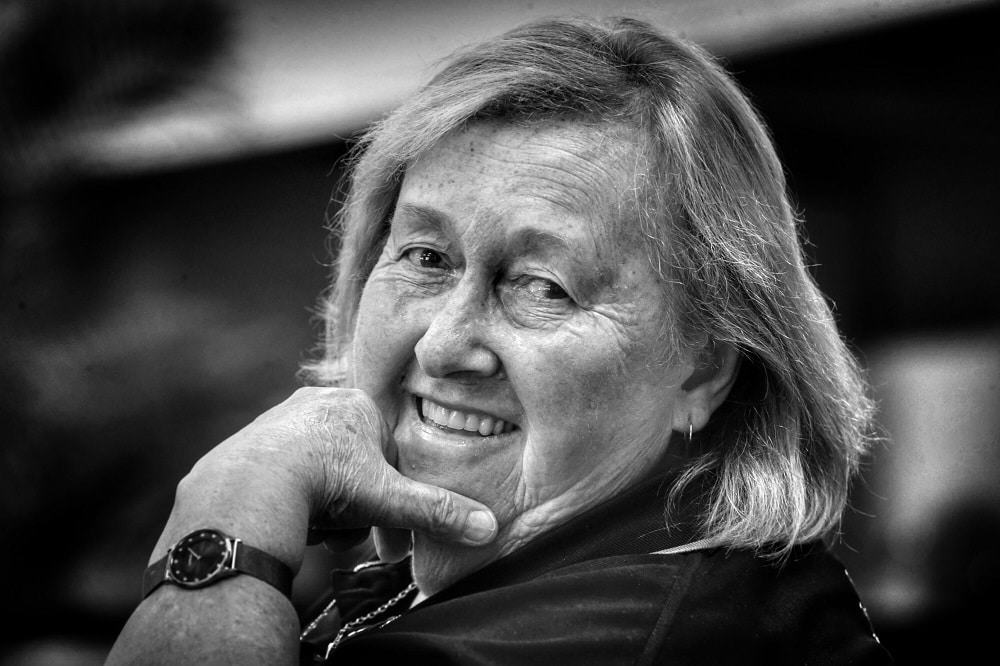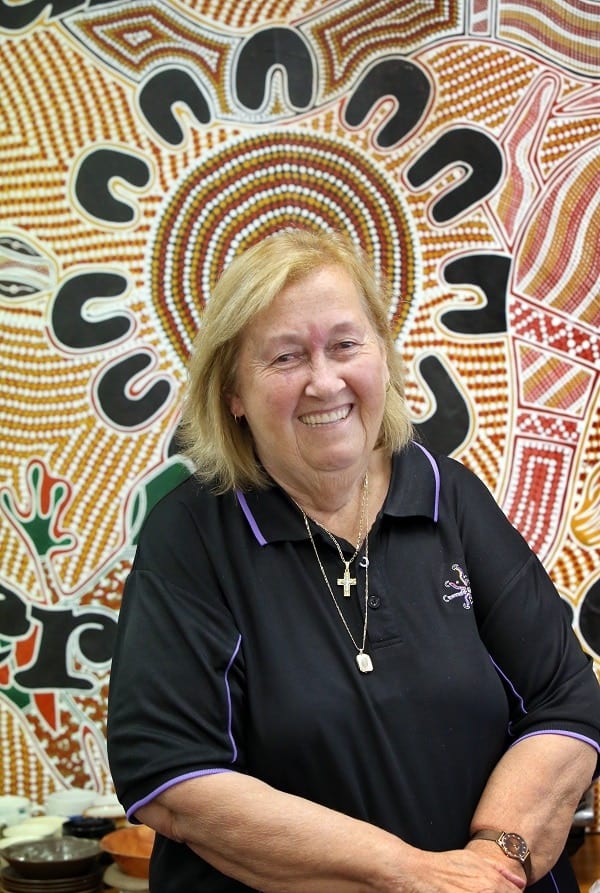It still brings tears to her eyes.
The painful memory of holding small, heartbroken children in her arms.
Trying to soothe their cries and not knowing why they were there.
When Aunty Faye Carr was 14, she left school and her home at Deebing Creek to live and work at the Nudgee orphanage.
“They shaved my hair off, I hated it there,” she said.
She still remembers the long afternoons when she held the little children tight and cried along with them.
“There was a family came that I knew from home. I remember thinking why are they here? They shouldn’t be here. They were only little things.
“I didn’t understand.
“The whole family was taken forcibly. My uncle vowed to find as many as he could. He found them all over and they had all suffered horrific abuse.
“They were not abused in their home.
“And that’s the one thing that I have never ever forgotten,” she said.
The time she spent there changed her life forever.
The stolen generation is the term used for Aboriginal people forcibly taken away from their families between the 1890s and 1970s, many to never to see their parents, siblings or relatives, again.
It’s injustices like these that forged Aunty Faye’s resolve, and the drive to set change in motion.
Upon meeting Aunty Faye her compassion is overwhelming.
She greets me, a white stranger, with a big hug.
We sit down to talk about her most recent accolade. Aunty Faye is to be given the Key to the City of Ipswich in a civic ceremony.
“That was a shock. I thought I was going to fall off my chair.
“I’m going to wear it around my neck,” she laughed.
After being named Ipswich Citizen of the Year in 2016, Aunty Faye has also be honoured as the 2017 National NAIDOC Female Elder of the Year.
The Yuggera Elder has impacted the lives of indigenous Australians from Ipswich and beyond and continues to give back to the community she loves.
She has been involved in the creation and running of a range of community organisations, including the Brisbane Aboriginal Legal Service, now known as the Aboriginal and Torres Strait Islander Legal Service (Qld) Ltd (ATSILS), which provides legal services throughout Queensland.
The Kambu Progress Association delivers housing and sporting services to the Ipswich community and the Kambu Aboriginal and Islander Health Service, which delivers a range of primary health services in Ipswich and the surrounding area.
She is also the Chairperson of Liworaji Aboriginal Corporation which “somewhere” families and young people can get information and speak with elders.
Aunty Faye has always advocated to better the lives of the Aboriginal and Torres Strait Islander Community in Ipswich.
The 2017 NAIDOC award committee said Aunty Faye was a strong wise elder, advocate and in leader in her community.
They went on to say that she exemplifies the values important to the community.
I think, she is an incredible person.
Awarding Aunty Faye the Key to the City represents the highest honour a City can confer on an individual.
The work she has been doing in Indigenous affairs makes her a very worthy recipient.
She is a great community elder, not just and indigenous elder but a community elder.
She is unrelenting in her work to make the Ipswich community a better place for not just herself and her family, but the community as a whole.
Aunty Faye is currently in Sorry Business for the eldest Yuggera person, Aunty Phillis Parson nee Thompson, who passed away at 91.
“When I got into trouble with Mum, I used to write letters to Aunty Phill: ‘Can I please come up, can you pay for it?’ So I’d jump on the train and go and stay with Aunty Phill in Bundaberg. She never drank or smoke. Just worked,” she said.
Aunty Faye is the second eldest of 14 children. She has had 9 children, 47 grandchildren and 18 great-grandchildren. There have been 12 sets of twins from seven of her siblings. Having a large family is important to Aunty Faye.
“I just wanted my kids to have better lives,” she said.
“I worry about my Grandkids and any of these little fellas that are running around the streets. They don’t realise how dangerous it is down there.”

History
The granting and presentation of a Key to the City is a symbolic presentation, which represents the highest honour a City can confer on an individual or an organisation.
A Key to the City can be awarded to an individual or organisation for furthering the ideals of the City of Ipswich or to recognise outstanding achievement in public life.
The tradition of a Key to the City dates back to medieval times, when many cities were enclosed within walled fortifications.
The ‘key’ symbolised the political relationship between a city and the King/Queen or ruler of the land on which the city was located.
When the ruler visited the city for the first time after assuming power, the authorities would formally greet him/her at the gates and present a key to signify that the city was now under his/her control.
The key would then be returned by the ruler to the city authorities to acknowledge that he/she intended to respect the political authority of those who administered the city.
The Key to the City is bestowed upon distinguished persons and honoured guests of the City of Ipswich. The key symbolizes free entry.
The granting of the Keys to the City is a symbolic presentation, which represents the highest honour that a City can confer on an individual or an organisation.




5
4.5